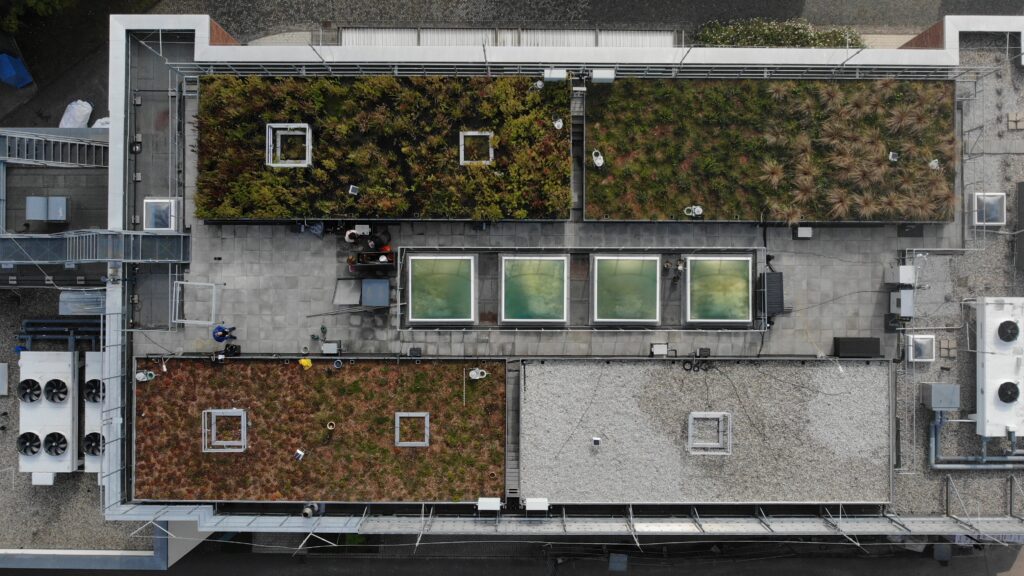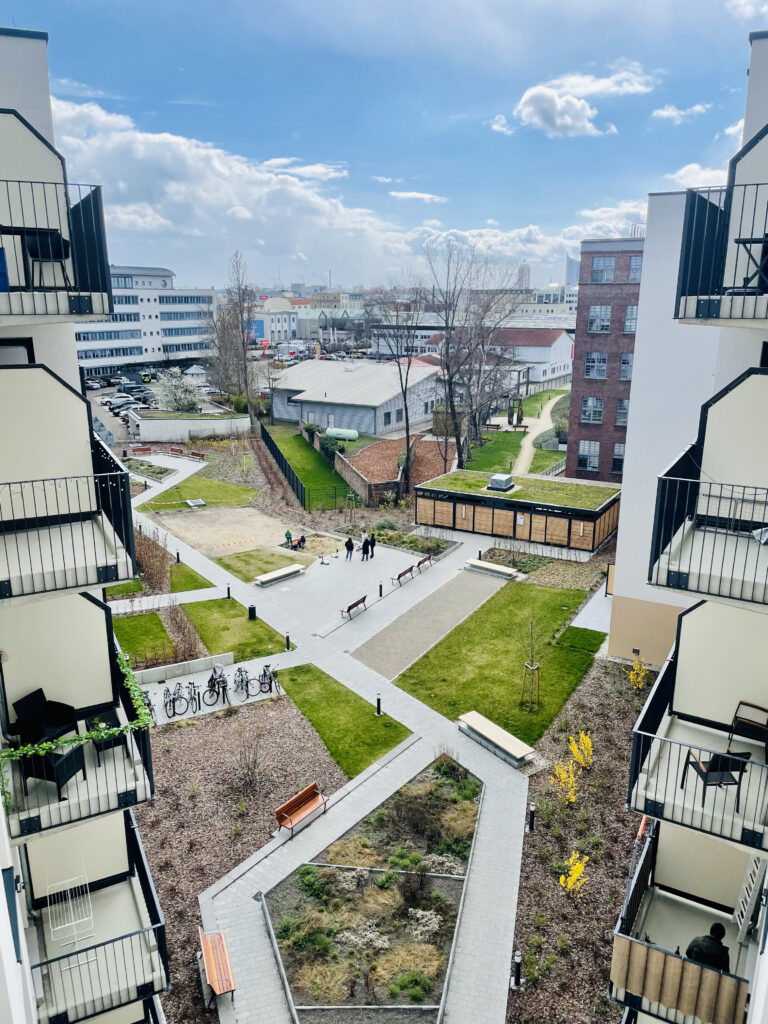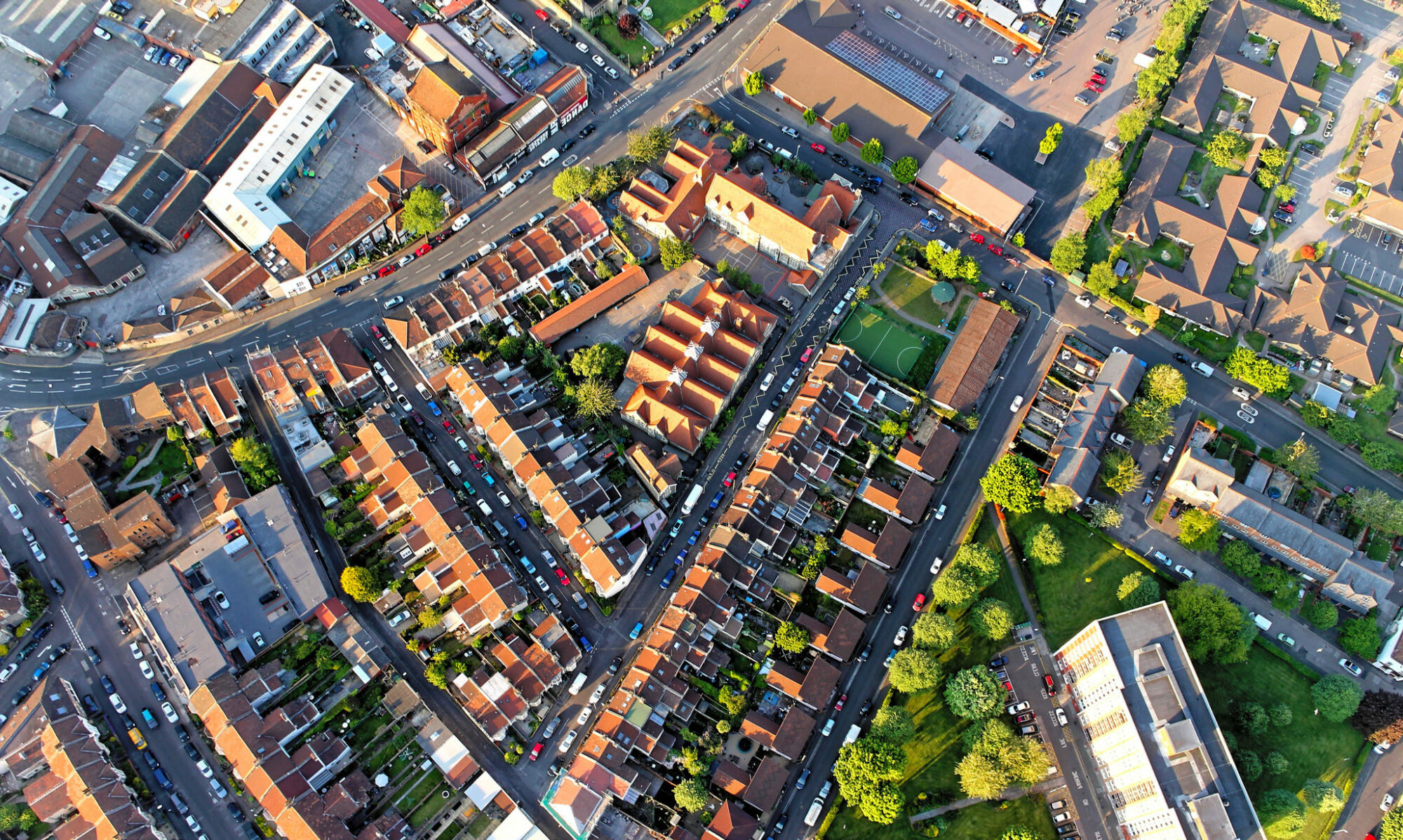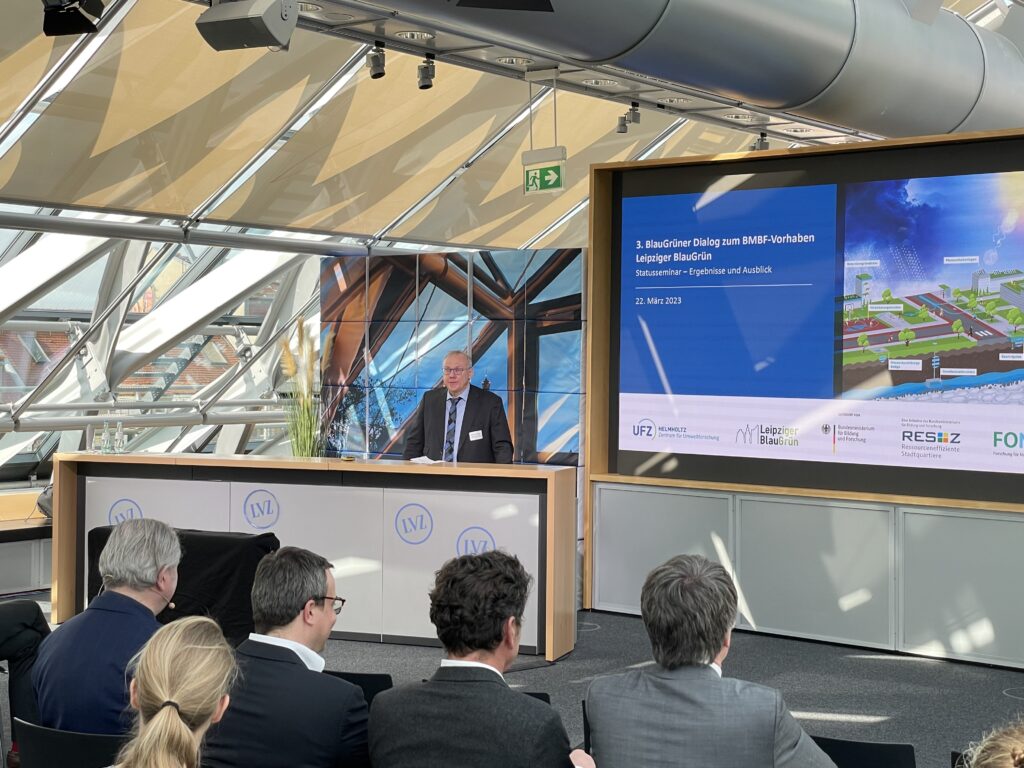Leipzig BlueGreen II –
Blue-green district development in Leipzig

The city of Leipzig has taken on the challenge of further developing central infrastructures such as the sewage network in a climate-sensitive manner. Advocates of water-sensitive urban development have encouraged a paradigm shift among experts toward decentralized, nature-based solutions. Due to climatic changes such as drought and heavy rainfall, city stakeholders are now committed to implementing resource-efficient transformation of urban neighborhoods.
Climate change enforces and enables the sustainable transformation of urban infrastructures
According to climate data from the German Meteorological Service (DWD), the city of Leipzig was one of the major German cities with particularly low annual precipitation in 2018 and 2019, resulting in dangerously low soil moisture contents. The amount of plant available water is steadily decreasing and is becoming visible by large tree losses that occurred in 2019 and 2020, where more than 2.000 trees in public green spaces died. At the same time, the city of Leipzig must also respond to an increase in heavy rainfall events which is putting enormous pressure on existing infrastructures, such as networks, as well as on the centralized wastewater treatment plants. These challenges are further exacerbated by a rising degree of sealing due to pending new construction and redevelopment in this rapidly growing city.
A major challenge is now to translate political targets and resolutions into municipal action. To this end, concrete measures must be defined for stakeholders, implemented and consolidated in the transformation process.

© André Künzelmann (UFZ)

© Marc Breulmann
A newly build urban quarter with more than 2000 flats becomes blue-green
The prospects for implementing the results from Phase 1 are enormous: This applies to both the implementation of the blue-green planning and modelling scenarios, the application of technological solutions obtained therein, and also the co-design processes for the incorporation of the results by the city of Leipzig. A high participation in our workshops and the numerous nationwide interview requests have shown the overall interest in the research topic and in an adoption of the results at other locations.
The developed scenarios and technologies for the planned new neighbourhood to be constructed, as well as existing neighbourhoods will serve as a blueprint for other locations. Findings of the project are being recognized beyond the state of Saxony. Recommendations for action for a paradigm shift in urban water management have also been developed at the federal level.
Anchoring blue-green urban development throughout Leipzig and beyond
Valuable communication structures were established in Phase 1, which are now being expanded as a model in the so-called “Kolonnadenviertel” as part of the upcoming portfolio renovation of the Leipzig Housing Association (LWB). At the same time, planning and decision-making processes for the entire city are being optimized by preparing potential analyses for investment planning for the bluegreen retrofitting of existing neighbourhoods. In addition to the evaluation of public properties, the preparation of a Leipzig action plan for the future use of blue-green investments is of great importance. The continuation beyond the project duration is ensured by the support of the inter-agency steering committee for “water-sensitive urban development”. The Committee evaluates, prioritizes, and prepares implementations for the blue-green urban development. In the second phase of the project, the necessary organizational and legal framework conditions will be developed, evaluated and introduced as recommendations for political decision-making processes.
Project title
Leipzig BlueGreen II –Multifunctional infrastructures for energy- and water-efficient urban districts
Internet
www.ufz.de/leipziger-bg
Duration
01.01.2023–31.12.2024
Funding code
033W110AN
Funding
839.043 €
Contact
Prof. Dr. Roland Arno Müller
Helmholtz-Zentrum für Umweltforschung GmbH – UFZ
Tel.: 0341 235 1275
E-Mail: roland.mueller@ufz.de
Project partners
Helmholtz-Zentrum für Umweltforschung (Umwelt- und Biotechnologisches Zentrum, Department Umwelt- und Planungsrecht)
Universität Leipzig (Institut für Infrastruktur und Ressourcenmanagement)
Hochschule für Technik und Wirtschaft HTWK Leipzig, Forschungs- und Transferzentrum
GFSL clausen landschaftsarchitekten, gruen fuer stadt + leben gmbh
Stadt Leipzig (Stadtplanungsamt, Amt für Umweltschutz, Amt für Stadtgrün und Gewässer, Amt für Geoinformation und Bodenordnung, Verkehrs- und Tiefbauamt, Amt für Wohnungsbau und Stadterneuerung, Amt für Gebäudemanagement, Referat Digitale Stadt, Referat Klimaschutz und Nachhaltige Entwicklung)
Tilia GmbH
Optigrün International AG
Umweltbundesamt (Abwassertechnologieforschung)
Leipziger Wohnungs- und Baugesellschaft (LWB)
Version of
Oktober 2019
Information on the first funding phase (2019 – 2022) can be found here
Results
Results of the second funding phase
Results of the first funding phase
Results of 2019 – 2022 –
Contribution to the publication of the results of the first funding phase Ein Leipziger Quartier für ein Leben mit Klimaextremen
Results of 2021 – Contributions to the RES:Z-Newsletter 3: Zukunftsfähige BlauGrüne Infrastrukturen für das Leipziger Quartier L416, BlauGrüner Wissenstransfer
Results of 2020 – Contribution to the RES:Z-Newsletter 2: Multifunktionale blau-grüne Infrastrukturen
Results of 2019 – Contribution to the RES:Z-Newsletter 1: Leipziger BlauGrün gestartet



